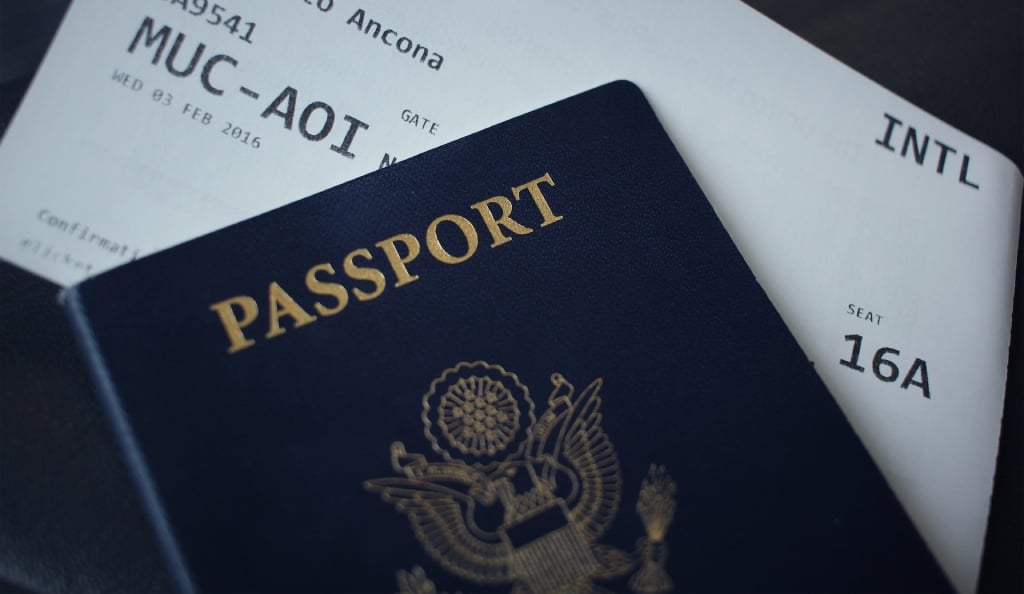Eight of the most common mistakes when applying for Italian citizenship

Applying for Italian citizenship is not always the fastest process, but mistakes can further lengthen waiting times or even result in a denied claim. Here are some of the most common pitfalls.
Getting Italian citizenship is no walk in the park and, though some routes can be slightly quicker or less complex than others, the process is generally very lengthy.
Under Italian law, all citizenship claims should be either approved or denied within a maximum of three years, but waiting times are frequently longer than that, especially in foreign countries with high numbers of citizenship applications (Brazil, Argentina, USA).
So, if you're considering applying, you'll want to make sure that your application is absolutely watertight to avoid further prolonging the process or having your claim denied altogether.
Here are some of the most common mistakes people make on their citizenship application and how you can avoid them.
Having an expired passport
It may seem obvious, but you won’t be able to successfully complete your Italian citizenship application without a valid passport. This may mean having at least six months’ validity left on your passport at the time of application - always check with the Questura or consulate before submitting your application, as the specifics often vary from one office to another.
Also, since claims are generally fairly lengthy, you might want to make a note of your passport’s expiration date.

You won’t be able to successfully complete your Italian citizenship application without a valid passport. Photo by Nicole Geri on Unsplash
Should your passport expire during the application process, you might be asked to provide evidence that a renewal is underway.
Having incomplete or inaccurate information in your documents
Even the smallest of errors can stall an application for weeks or even months, so you’ll want to make sure that yours is totally mistake-free.
You should pay particular attention to names, surnames, dates of birth, addresses, ID numbers and tax codes - both on the application forms you fill out and on official documents issued to you.
Remember that mistakes can sometimes be made by officials or office clerks, so it’s always best to double check any document that’s been filled out for you by someone else. Always check, for example, your Italian ID card or carta di soggiorno carefully for mistakes - if any of the details are incorrect, you’ll need to get it reissued before using it in your citizenship application.
Errors can be particularly frequent in iure sanguinis (ancestry) citizenship claims due to discrepancies between Italian records and foreign-issued documents.
READ ALSO: Is Italy tightening the requirements for citizenship via ancestry?
In such cases, it is essential that applicants address any issues with their foreign consulate.
Applying with a criminal record
Having a criminal record does not automatically void a citizenship application.
However, the criminal records of all applicants are vetted by Italian authorities in the early application stages and even minor offences can sometimes result in a denied claim.
People with a criminal record are generally advised to seek the counsel of a legal expert before submitting a citizenship application.
Failing to prepare for the Italian language test
When applying for Italian citizenship through marriage or residence, you must submit a certificate proving proficiency in the Italian language at B1 level or above.

People applying for Italian citizenship through marriage or residence have to submit proof of B1 proficiency in the Italian language. Photo by Unseen studio on Unsplash
B1 is defined as a lower intermediate level and requires people to be proficient enough in the language to manage everyday interactions, follow most conversations on TV shows and get the gist of what’s in Italian newspapers.
READ ALSO: EXPLAINED: The three ways to apply for Italian citizenship
If you’ve lived in Italy for a while, there’s a good chance you’re already at this level or close to it. If not, you might have to sign up for Italian language classes.
The language certificate must be issued by one of four schools in Italy accredited by the Italian Education Ministry or Foreign Ministry. You can find more details here.
To get this certificate, you’ll need to sit and pass an exam which can be taken at language schools around Italy and abroad. If your language school advertises B1 testing for citizenship, make sure they are accredited by one of the recognised institutions.
Further info about obtaining this certificate can be found here.
Not getting your foreign-issued documents translated and validated
All foreign-issued documents, including birth certificates and criminal records, must be translated into Italian and legally validated (this is known as legalizzazione) by the Italian consulate of the country that issued them.
Documents written in any language other than Italian will not be accepted as valid.
READ ALSO: How the '1948 rule' could affect your Italian citizenship application
Once again, this point is especially relevant for citizenship via ancestry claims, as applicants are required to produce birth, death and marriage certificates for all of their direct Italian ancestors.
Submitting your application before the residence requirement has been fulfilled
If you’ve been living legally and continuously in Italy for 10 years (or four years for EU nationals), you have the right to apply for Italian citizenship.

Non-EU nationals must live legally and continuously in Italy for 10 years before they can claim citizenship. Photo by Gabriel BOUYS / AFP
However, you can only apply after meeting the above time requirement. All ‘early’ applications are rejected.
READ ALSO: How to register with the anagrafe in Italy
If you’re considering applying for citizenship via residency, you should also keep in mind that the ten-year (or four-year) timeframe starts when you officially register with the Italian Ufficio Anagrafe (Registry Office), not when you first enter the country.
Not living with your spouse long enough
The spouse of an Italian national can apply for Italian citizenship after two years of legal residence in Italy or three years if living abroad.
As mentioned earlier, you’ll only be able to submit your application after meeting the time requirement, and the timeframe again starts from the date you are legally registered as a resident.
Failing to take the oath
Though it doesn’t apply to the application process itself, this is still a point worth making.
From the moment they’re awarded Italian citizenship, new citizens have six months to take an oath of allegiance to the Italian Republic. If they don’t, their citizenship will be automatically revoked.
Comments (1)
See Also
Getting Italian citizenship is no walk in the park and, though some routes can be slightly quicker or less complex than others, the process is generally very lengthy.
Under Italian law, all citizenship claims should be either approved or denied within a maximum of three years, but waiting times are frequently longer than that, especially in foreign countries with high numbers of citizenship applications (Brazil, Argentina, USA).
So, if you're considering applying, you'll want to make sure that your application is absolutely watertight to avoid further prolonging the process or having your claim denied altogether.
Here are some of the most common mistakes people make on their citizenship application and how you can avoid them.
Having an expired passport
It may seem obvious, but you won’t be able to successfully complete your Italian citizenship application without a valid passport. This may mean having at least six months’ validity left on your passport at the time of application - always check with the Questura or consulate before submitting your application, as the specifics often vary from one office to another.
Also, since claims are generally fairly lengthy, you might want to make a note of your passport’s expiration date.

Should your passport expire during the application process, you might be asked to provide evidence that a renewal is underway.
Having incomplete or inaccurate information in your documents
Even the smallest of errors can stall an application for weeks or even months, so you’ll want to make sure that yours is totally mistake-free.
You should pay particular attention to names, surnames, dates of birth, addresses, ID numbers and tax codes - both on the application forms you fill out and on official documents issued to you.
Remember that mistakes can sometimes be made by officials or office clerks, so it’s always best to double check any document that’s been filled out for you by someone else. Always check, for example, your Italian ID card or carta di soggiorno carefully for mistakes - if any of the details are incorrect, you’ll need to get it reissued before using it in your citizenship application.
Errors can be particularly frequent in iure sanguinis (ancestry) citizenship claims due to discrepancies between Italian records and foreign-issued documents.
READ ALSO: Is Italy tightening the requirements for citizenship via ancestry?
In such cases, it is essential that applicants address any issues with their foreign consulate.
Applying with a criminal record
Having a criminal record does not automatically void a citizenship application.
However, the criminal records of all applicants are vetted by Italian authorities in the early application stages and even minor offences can sometimes result in a denied claim.
People with a criminal record are generally advised to seek the counsel of a legal expert before submitting a citizenship application.
Failing to prepare for the Italian language test
When applying for Italian citizenship through marriage or residence, you must submit a certificate proving proficiency in the Italian language at B1 level or above.

B1 is defined as a lower intermediate level and requires people to be proficient enough in the language to manage everyday interactions, follow most conversations on TV shows and get the gist of what’s in Italian newspapers.
READ ALSO: EXPLAINED: The three ways to apply for Italian citizenship
If you’ve lived in Italy for a while, there’s a good chance you’re already at this level or close to it. If not, you might have to sign up for Italian language classes.
The language certificate must be issued by one of four schools in Italy accredited by the Italian Education Ministry or Foreign Ministry. You can find more details here.
To get this certificate, you’ll need to sit and pass an exam which can be taken at language schools around Italy and abroad. If your language school advertises B1 testing for citizenship, make sure they are accredited by one of the recognised institutions.
Further info about obtaining this certificate can be found here.
Not getting your foreign-issued documents translated and validated
All foreign-issued documents, including birth certificates and criminal records, must be translated into Italian and legally validated (this is known as legalizzazione) by the Italian consulate of the country that issued them.
Documents written in any language other than Italian will not be accepted as valid.
READ ALSO: How the '1948 rule' could affect your Italian citizenship application
Once again, this point is especially relevant for citizenship via ancestry claims, as applicants are required to produce birth, death and marriage certificates for all of their direct Italian ancestors.
Submitting your application before the residence requirement has been fulfilled
If you’ve been living legally and continuously in Italy for 10 years (or four years for EU nationals), you have the right to apply for Italian citizenship.

However, you can only apply after meeting the above time requirement. All ‘early’ applications are rejected.
READ ALSO: How to register with the anagrafe in Italy
If you’re considering applying for citizenship via residency, you should also keep in mind that the ten-year (or four-year) timeframe starts when you officially register with the Italian Ufficio Anagrafe (Registry Office), not when you first enter the country.
Not living with your spouse long enough
The spouse of an Italian national can apply for Italian citizenship after two years of legal residence in Italy or three years if living abroad.
As mentioned earlier, you’ll only be able to submit your application after meeting the time requirement, and the timeframe again starts from the date you are legally registered as a resident.
Failing to take the oath
Though it doesn’t apply to the application process itself, this is still a point worth making.
From the moment they’re awarded Italian citizenship, new citizens have six months to take an oath of allegiance to the Italian Republic. If they don’t, their citizenship will be automatically revoked.
Join the conversation in our comments section below. Share your own views and experience and if you have a question or suggestion for our journalists then email us at [email protected].
Please keep comments civil, constructive and on topic – and make sure to read our terms of use before getting involved.
Please log in here to leave a comment.